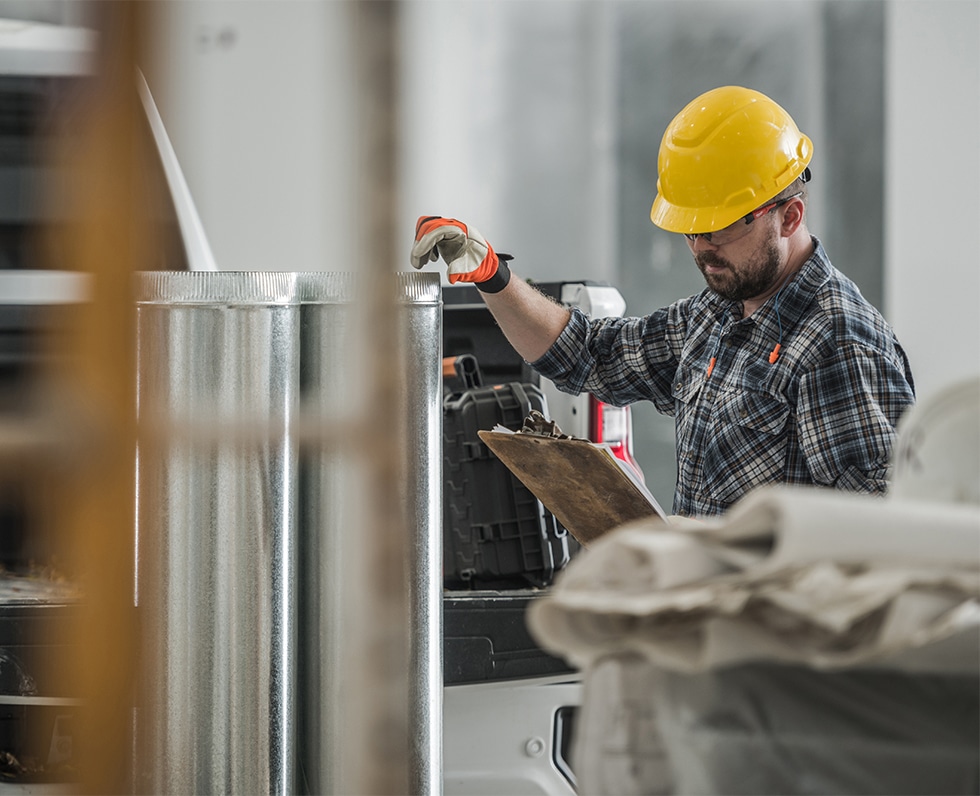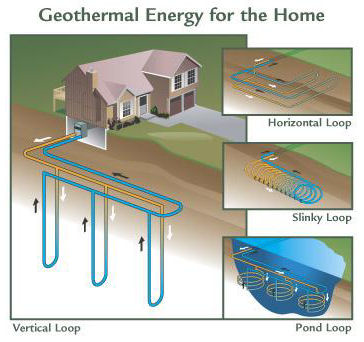
Gagnon Heating & Air Conditioning, Inc. is a full service heating & air conditioning company specializing in utilizing technology to utilize our natural resources and remove our reliance on fossil fuels. Whether it be a geothermal heating & cooling system to help cut oil consumption, a radiant heat system to keep your home warm and your driveway free from ice & snow buildup, or a central air conditioning system to keep you comfortable year round.
Much of what we do involves geothermal heating & cooling systems. We have been installing geothermal systems since 2000. Gagnon Heating & Air Conditioning is Maine’s Geothermal leader with over 200 systems installed. With 24 hour on call staff, we are there when you need us.
One of our installations received the first Gold Level LEEDS certificate in New England. We are a member of the NEGPA (New England Geothermal Professional Association) and a member of the NBA. Quality assured through ACCA. We perform design work to determine your systems needs including geothermal heat pump needs, radiant heat and air system duct design. We also assist in well system design.
What is Geothermal Energy?
Geothermal energy is solar energy stored in the earth’s crust. Geothermal energy is also considered as energy from Magma and the radioactive decay of uranium, thorium and potassium.
How does a Geothermal Heat Pump Work?
A geothermal heat pump transfers heat from one place to another by evaporating & condensing refrigerant using a compressor and an expansion device.
In the heating mode, we have a coaxial heat exchanger that acts as the evaporator coil in which we take heat out of the water flowing through it. Then this refrigerant enters the compressor. The compressor boosts the pressure & temperature of the refrigerant Now this high evaporated temperature crosses through the Condenser heat exchanger. Here the air temperature in the home is cooler than the refrigerant temp. Therefore the refrigerant temp gives it’s heat up to the air, condensing back into a liquid. This high pressure liquid is then pushed through a small expansion valve device. This device changes the characteristics of the refrigerant to a saturated cool gas because of the massive pressure drop. Where the temperature now is cooler than the column of water flowing through so it can again extract heat from the water and continue this process.
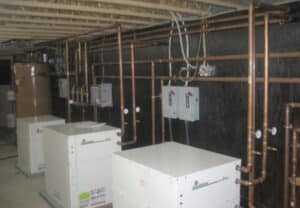
What are the different Types of Geothermal Heat Pumps?
There are two types of geothermal Heat Pumps.
● Water to Air
● Water to Water
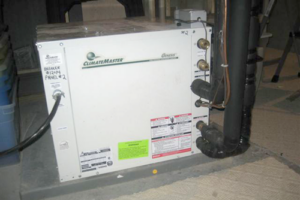
Water to Water systems have a secondary heat exchanger. This system is used for hydronics or radiant heat.
High temperature circuits such as baseboard, radiators are not recommended for they require very high water temperature. A heat pump will provide a max water temp of 120 degrees, unlike a boiler that will heat to 180 degrees.
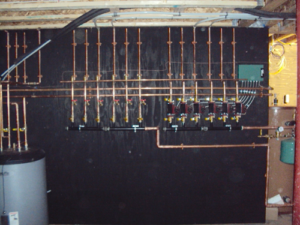
What to think about when considering Geothermal Air
● Is the structure single story or two story
● Is there a full basement with at least an 8′ ceiling
● If there is a second floor, is there attic space available
● Simply need space for Ductwork.
What to think about when considering Geothermal Radiant
Radiant in Lightweight concrete: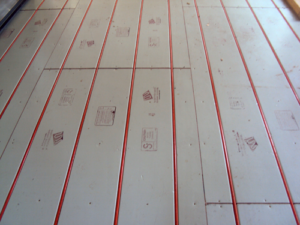
● Structural Support, sizing of floor joists
● Partition plates, may want to double them depending on thickness.
● Plumbing rough in.
● Electrical rough in.
● Island base
● Floor coverings
● Jack & header heights
If you choose not to use concrete
● Staple up systems can be done, (supplemental heat required) on occasion
● Panelized systems can be done. (expensive)
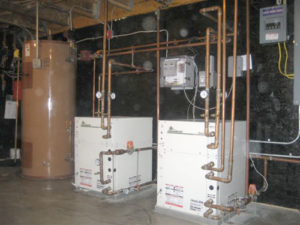
There are many things that go along with a geothermal system.
● Tonnage
● Single or Two Stage Compressor
● Single Speed or Variable Speed Blower
● Desuperheater and options ● Noise
● Well Control & bleed ● Refrigerant type
● Duct Sizing ● Diagnostics
● Radiant Manifolds ● Outdoor controls
● Water temperature ● Solar Option
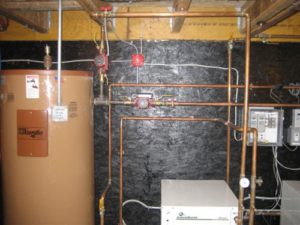
Though Geothermal system do not require a backup
Any type of Heating System can fail, including Geothermal. Living in Maine, it is a good idea to have a backup regardless of what type of heating system you have. That is why we install a system that has a backup.
● Water to Air System- electric duct heater backup
● Water to Water System- electric backup in Accumulator tank.
Generator Related
Generators can be used. Just note that the generator needs to be sized for the start up Amp draw or the inrush Amps. This is typically 3 times the running load amps. Unfortunately we need to size the generator for this 1 or 2 second demand to get the compressor operational.

Sizing a geothermal system is very much the same as a conventional system.
● Floor Plans & Elevations required, sometimes cross sections
● Insulation Type and R-values
● Window sizes, U-values + SHGC
● orientation (more for cooling)
● internal loads (commercial only)
Electrician Related

● They need to be aware of the grounding practices
● It’s best to have electrician contact us for this information
Construction Process
Construction process is very similar to conventional heating systems
● First Step should be to have the well drilled
● Once the roof is liquid tight we can begin
● Windows not needed but should have plastic if near mechanicals
● Water to air system it is not recommended to run under construction
● Radiant systems can operate sooner. Building should be insulated.

● $ 2,000.00 renewable energy tax credit for systems installed between Jan. 1st 2008 and Dec. 31st 2016.
● Income tax credit $ 300.00 year.
● There is a 30% TAX CREDIT WITH NO CAP!!!!
Visit our Tax Services
To learn more on how a geothermal system can benefit your home or business, please contact us via email or phone us at 207-647-8782.


